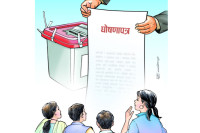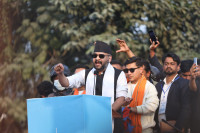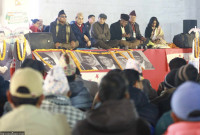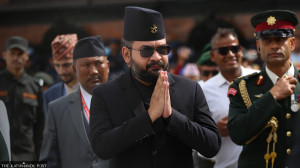Opinion
Central command
Despite all its shortcomings, we should support the state when it comes to reconstruction works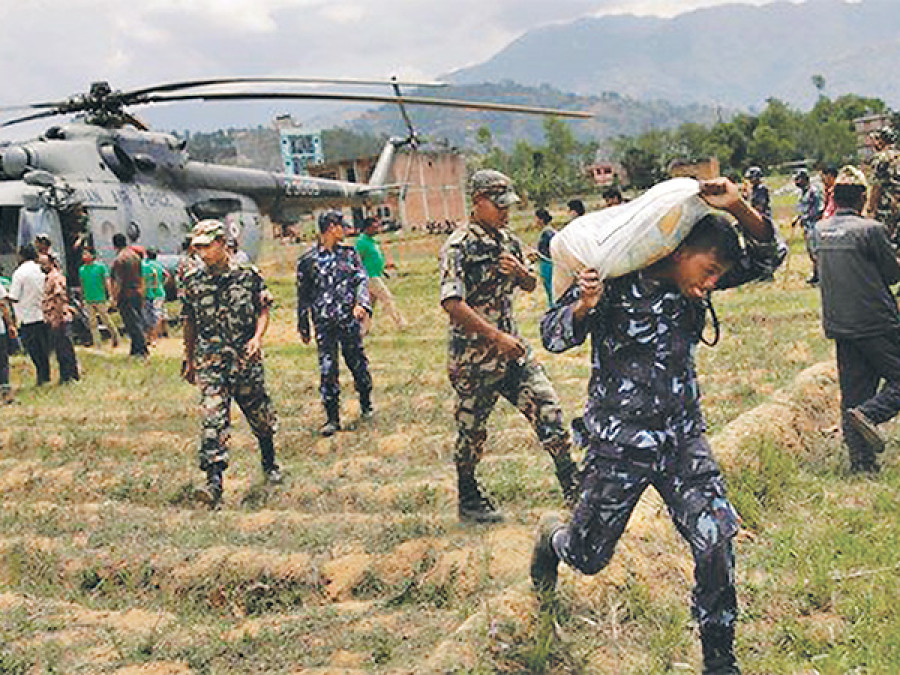
Sandhya Sitoula & Subin Mulmi
Social media is abuzz with debates surrounding the efficiency of the relief works carried out by the government. Some are adamant that there can be no alternative to the government’s relief packages in the long run, whereas others truly believe that non-state actors likes community groups, volunteer groups, I/NGOs need to be given more room to contribute to relief, rehabilitation and reconstruction. This debate is a reminder to everyone that appropriate and effective distribution of resources is crucial to ensure that relief efforts are balanced, equal, fair and targeted.
Enthusiastic and clearly visible works carried by non-state actors (youth groups and other organisations) in relief and reconstruction is highly commendable. They have volunteered to step forward without the government formally making a call or any legal means requiring them to contribute.
However, regardless of the impact they have created, their role in the overall rehabilitation will always be secondary to that of the state. The primary reason behind this is, whereas the state can be dragged to the court to demand the rightful, equitable and proportional allocation of the relief packages, non-state actors cannot be held liable for their misconduct and/or any act or omission that is contrary to the interests of the earthquake affected people by the court of law.
Efforts and shortcomings
Immediately after the earthquake on April 25, the Government of Nepal made a decision to provide Rs 40,000 to the families of the deceased for performing death rituals. Additionally, it was also decided that the families whose shelters had collapsed would be provided with Rs 5,000 by District Natural Disaster Relief Committees. On May 26, the government decided to provide a temporary shelter or a sum of Rs 15,000 to the affected families who had nowhere else to go. Similarly, with regard to the long-term relief, Nepal Rastra Bank has announced a scheme to provide home loans of up to Rs 2.5 million inside the Kathmandu Valley and Rs 1.5 million outside the Valley at two percent interest rate to those whose houses had been damaged by the quake.
These measures are not without shortcomings. Procedures for obtaining these relief and rehabilitation packages have not been laid down as of yet. There are still some concerns that the state has not been able to address some key issues, one of which is determining the extent of damage and the necessary relief thereof. Submission of citizenship certificate might be one of the prime requirements to be eligible for the relief. But considering that many have lost their identity certificates in the quake, and that procedure of making new ones is complicated, it can be safely presumed that many affected persons will be denied government reliefs as a result of their inability to submit citizenship and other related documents. Thus the government immediately needs to introduce a strong mechanism to ensure proper registration of all the affected persons and also make new citizenship certificates for those who lost their documents.
International displacement is another such are that the government has not been able to address properly. As of now, the government has marked numerous villages as high-risk areas—taking into account the propensity of flood, landslide and other natural disasters in those areas—and has asked the people to evacuate these places as soon as possible. But no arrangements have been made until now for their rehabilitation. Similarly, proper measures need to be taken to ensure that criminals and human traffickers don’t get to prey on victims. With mass displacement taking place and thousands rendered vulnerable by the disaster, this is the perfect time for such people to act.
Let it lead
Despite displaying exceptional leadership in the immediate relief, the time has come for non-state agencies to concentrate their efforts in supporting the state to take charge of reconstruction and rehabilitation works. They have to understand that while relief works are of temporary nature and will eventually phase out, state mechanisms are there to stay. Though the state does not have a credible financial history, it still possesses the most logical, reasonable and scientific mechanism of using funds and has the required resources and power (legally granted to it) to deliver services in the most efficient manner. Further, fund allocations made by the government and the way it uses the money can be properly monitored, thus making it easier for the public to hold it accountable in cases of misuse.
So, criticising government actions in times like these will pose more problems than solving them. This is the time to take a sensible decision that benefits the nation instead of worsening the problem.
Sitoula is a program coordinator at the Center for Legal Research and Resource Development Mulmi is a human rights lawyer




 8.12°C Kathmandu
8.12°C Kathmandu


